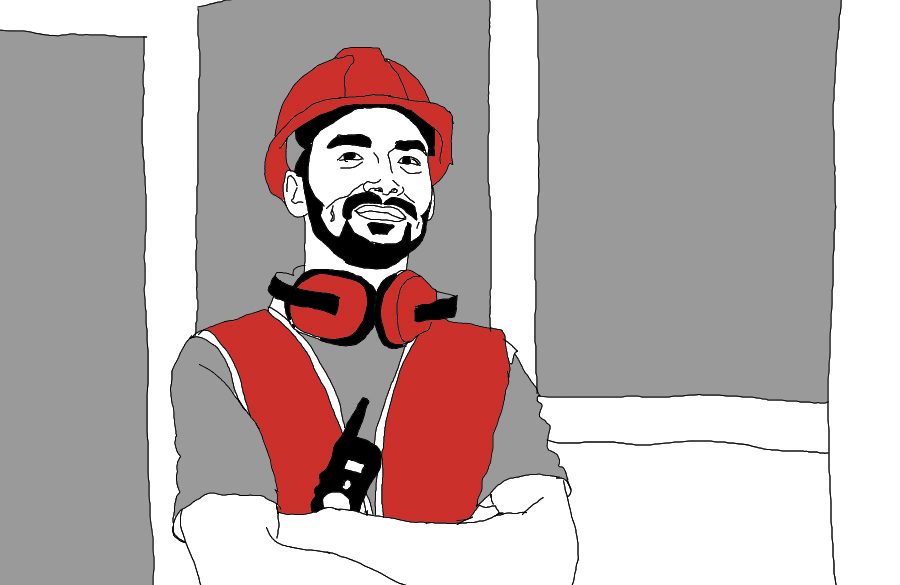Working in Construction Is No Longer Seen as a Low-Skill Job

The construction industry has undergone a remarkable transformation in recent years. Long gone are the days when construction work was dismissed as a low-skill job. Today, it is recognized as a highly technical, rewarding, and vital sector that plays a crucial role in shaping modern society.
With advancements in technology, stricter regulations, and a growing demand for skilled workers, construction has evolved into a field that requires expertise, continuous learning, and precision. This shift in perception is attracting more people to the industry, offering opportunities for those who are willing to invest in their skills. Here’s why construction is no longer seen as a low-skill profession.
Advanced Technology in Construction
Modern construction sites are hubs of innovation. Advanced technologies like Building Information Modeling (BIM), drones, 3D printing, and robotics have revolutionized the way projects are planned and executed.
- Building Information Modeling (BIM): BIM allows construction professionals to create digital blueprints of buildings, ensuring accurate planning and reduced waste.
- Drones and Robotics: From surveying land to laying bricks, drones and robotic systems are becoming common tools, requiring operators to have technical knowledge and specialized training.
- Sustainable Construction Materials: The push for eco-friendly construction has introduced materials that require specific handling and installation techniques.
Using these technologies requires technical expertise and problem-solving skills, elevating the level of knowledge required to work in the industry.
Growing Emphasis on Skilled Trades
Construction projects rely on a variety of skilled tradespeople, including electricians, plumbers, welders, and bricklayers. These roles demand specialized training, certifications, and a deep understanding of safety regulations and building codes.
In the UK, qualifications like NVQs (National Vocational Qualifications) in construction-related fields ensure that workers meet industry standards. Employers now prioritize hiring tradespeople with proven skills, recognizing the value of professional expertise.
Higher Education and Training Requirements
To meet the demands of modern construction, education and training have become essential. Many construction roles now require formal qualifications and certifications.
- Apprenticeships: Aspiring tradespeople often complete apprenticeships, combining hands-on experience with classroom learning.
- Certifications: Specialized certifications, such as those for operating heavy machinery or working at heights, are often mandatory.
- Continuous Professional Development (CPD): Construction professionals must stay updated on the latest technologies and regulations, making ongoing education a key aspect of the job.
The construction industry’s emphasis on formal training reflects its shift away from being seen as low-skill work.
Stricter Safety and Building Regulations
Safety is paramount in construction, with stringent UK regulations like the Construction (Design and Management) Regulations 2015 (CDM) placing responsibility on workers to ensure safety at every stage of a project.
To comply with these rules, workers need comprehensive knowledge of safety protocols, risk management, and legal standards. Construction professionals must also be skilled in conducting site inspections, using protective equipment, and handling hazardous materials. These responsibilities demand a level of expertise that goes far beyond basic manual labour.
Career Progression and Professional Recognition
Construction offers clear pathways for career advancement. From entry-level roles to management and specialist positions, the industry provides opportunities for growth and skill diversification.
- Project Managers: Skilled tradespeople can transition into leadership roles, overseeing entire construction projects.
- Specialists: Workers can choose to specialize in areas like green building, heritage restoration, or high-tech infrastructure.
- Recognition: Organizations like the Chartered Institute of Building (CIOB) and the Construction Industry Training Board (CITB) promote professional recognition, further enhancing the industry’s credibility.
These opportunities highlight the complexity and professionalism of construction work, challenging outdated perceptions of the trade.
Rising Wages and Demand for Skilled Workers
The shortage of skilled workers in the UK has driven up wages in the construction industry, making it a financially attractive career choice. High demand for expertise in fields like renewable energy, modular construction, and infrastructure projects means that skilled workers are highly valued.
The combination of competitive pay, job security, and opportunities for specialization underscores the fact that construction is a highly skilled profession.
A Role in Shaping the Future
Construction workers are no longer just builders; they are innovators, problem-solvers, and creators. From designing energy-efficient homes to constructing smart cities, the work they do has a lasting impact on communities and the environment.
This sense of purpose elevates the industry and inspires people to pursue it as a meaningful career.
Conclusion
The perception of construction as a low-skill job is a thing of the past. Modern construction requires technical expertise, continuous education, and a commitment to safety and innovation. With opportunities for career growth, high wages, and the chance to work on projects that shape the future, construction is now a respected and rewarding profession.
At ERR, we’re committed to helping individuals gain the skills they need to excel in the construction industry. Our training programs offer hands-on experience and certifications designed to prepare you for the challenges and opportunities of this evolving field. Whether you’re just starting out or looking to advance your career, we’re here to help you build a future in construction.